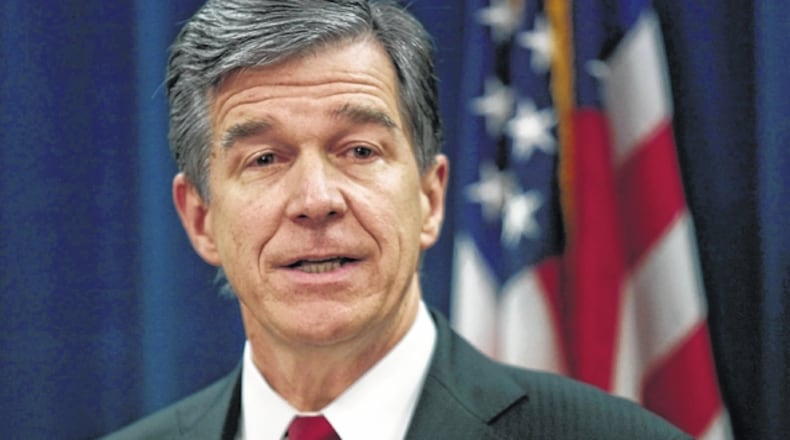The constitutional crisis unfolding in North Carolina right now might seem familiar to Georgia politicos.
There were no surprise special sessions when newly-empowered Republicans limited Democratic Lt. Gov. Mark Taylor's powers after taking control of the state Senate after the 2002 election. But the GOP caucus still effectively sidelined the statewide officer, despite the protests of leading Democrats.
A similar scenario is playing out now on a broader scale in North Carolina, where Republican legislative leaders are moving to strip Democratic Gov.-elect Roy Cooper's powers before he takes office. Since he won't take office until January, he won't be able to veto the measures.
"Major changes in the way state government operates should be done deliberately, with input from all parties, particularly something as important as elections and making sure people have the opportunity to vote," Cooper, the state's attorney general, told reporters. "They shouldn't be pushed through in the dark of night."
North Carolina Democratic Party spokesman Jamal Little went a step further, calling it a GOP attempt to "usurp" power after Republican Gov. Pat McCrory became one of the few conservative casualties of the November election.
"This is an unprecedented, shameful and cowardly power grab from Republicans," he said in a statement. "After losing the governor’s office, the GOP-controlled General Assembly is attempting to hold on to the power that voters took away from them."
Among the measures up for debate is a proposal that would require the state Senate to approve Cooper's Cabinet appointments that cleared two committees on Thursday.
Other measures would limit his selections to boards overseeing the state's higher education system and K-12 network, strip the governor's control of the state election board and slash the number of employees working for the governor from 1,500 to 300.
North Carolina House Rules Chairman David Lewis, one of the supporters of the measures, pitched it as a simple matter of checks-and-balances. He told reporters Thursday that the legislative branch aims "to establish that we are going to continue to be a relevant party in governing this state."
“I think to be candid with you, that you will see the General Assembly look to reassert its constitutional authority in areas that may have been previously delegated to the executive branch,” he said.
The drama unfolded about a week after McCrory conceded defeat to Cooper after a recount showed he lost by about 10,000 votes out of nearly 5 million ballots cast. The Republican had resisted for nearly a month, and his loss was seen by many Georgia lawmakers as a cautionary tale of the dangers of supporting contentious social legislation.
Democrats, meanwhile, raised the specter of a legal challenge if Republicans push forward with their plans. Several Democratic lawmakers contended the special session was unconstitutional, and Cooper said his attorneys were vetting every bill that was introduced in search of legal flaws.
"They will see me in court," he said. "And they don't have a very good track record there."
About the Author
The Latest
Featured




